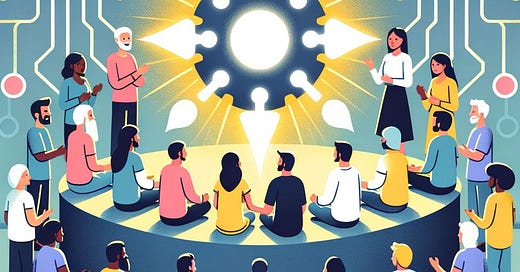For a last bit of time, it's been a pretty safe bet to assume that the best players in LLMs right now are closed-source (GPT-4, Mistal L, Gemini, Claude3, etc.)
But with Grok 2 going open-source on an Apache 2.0 license, a license that means pretty much do what you want with it commercially or otherwise (note: this is not legal advice), there is a step back to be taken.
Yes, Grok is nothing crazy from it's MMLU benchmarks, HumanEval or it's MoE architecture, but I believe it's a signal of the step in the "right" direction. What is this right direction? The direction of open-sourcing and moving as a collaborative unit, a direction that Elon Musk claims was OpenAI's initial vision.
Can you try Grok?
Only if you have an excess supply of GPUs, which is not that many of us. I would imagine you need a few H100s (or a lot of 3090s), but fear not as this constraint will be overcome sooner rather than later IMO. It simply has to, even from a non-Grok perspective.
For a last bit of time, it's been a pretty safe bet to assume that the best players in LLMs right now are closed-source (GPT-4, Mistal L, Gemini, Claude3, etc.)
But with Grok 2 going open-source on an Apache 2.0 license, a license that means pretty much do what you want with it commercially or otherwise (note: this is not legal advice), there is a step back to be taken.
Yes, Grok is nothing crazy from it's MMLU benchmarks, HumanEval or it's MoE architecture, but I believe it's a signal of the step in the "right" direction. What is this right direction? The direction of open-sourcing and moving as a collaborative unit, a direction that Elon Musk claims was OpenAI's initial vision.
Can you try Grok?
Only if you have an excess supply of GPUs, which is not that many of us. I would imagine you need a few H100s (or a lot of 3090s), but fear not as this constraint will be overcome sooner rather than later IMO. It simply has to, even from a non-Grok perspective.




